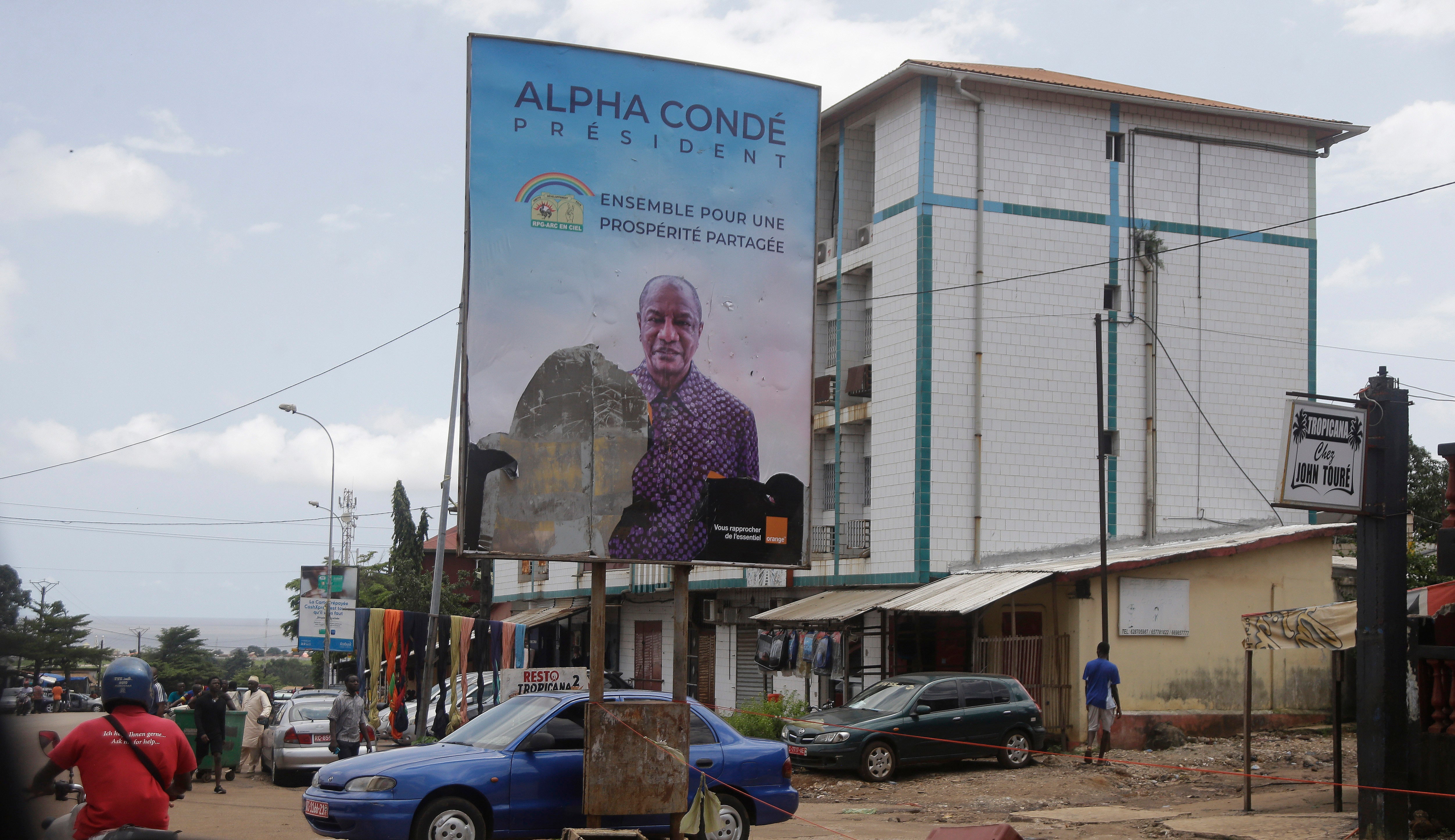Guinea junta freezes state assets as regional officials come
The junta that seized power in Guinea has ordered the central bank to freeze all government accounts in an effort to secure state assets and “preserve the country’s interest.”

Your support helps us to tell the story
From reproductive rights to climate change to Big Tech, The Independent is on the ground when the story is developing. Whether it's investigating the financials of Elon Musk's pro-Trump PAC or producing our latest documentary, 'The A Word', which shines a light on the American women fighting for reproductive rights, we know how important it is to parse out the facts from the messaging.
At such a critical moment in US history, we need reporters on the ground. Your donation allows us to keep sending journalists to speak to both sides of the story.
The Independent is trusted by Americans across the entire political spectrum. And unlike many other quality news outlets, we choose not to lock Americans out of our reporting and analysis with paywalls. We believe quality journalism should be available to everyone, paid for by those who can afford it.
Your support makes all the difference.The junta that seized power in Guinea has ordered the central bank to freeze all government accounts in an effort to secure state assets and “preserve the country’s interest.”
The move comes as a delegation of West African officials from the regional economic bloc known as ECOWAS arrives Friday in Guinea’s capital, Conakry, to meet with the military officers who toppled President Alpha Conde.
The mediators from Ghana Nigeria Togo and Burkina Faso along with ECOWAS commission president Jean-Claude Kassi Brou are expected to press the junta to immediately return Guinea to constitutional rule.
The 15-nation regional bloc suspended Guinea following Sunday’s coup led by Col. Mamady Doumbouya. The group has urged the coup leaders to assure the safety of the deposed president and others who have been arrested. Conde remains in the custody of the junta, who have only said that he is in a secure location with access to medical care.
Doumbouya and the special forces that put the West African nation under military rule for the first time in over a decade have criticized Conde's government for corruption and the poverty of Guinea's people. The junta leader portrayed himself as a patriot of Guinea, taking power for the people who remained poor. However, experts say the coup happened after tensions increased between the army colonel and the president because of a recent proposal to cut some military salaries.
The junta announced the temporary freezing of withdrawals on bank accounts related to public administrative and commercial establishments in all ministry departments and the presidency. The freeze also applies to “the programs and projects of presidential initiatives,” and “outgoing members of the government as well as senior civil servants, administrators and financial authorities of the state.”
Conde’s removal by force came after he sought and won a controversial third term in office last year, saying the term limits did not apply to him. Conde was elected in 2010 in the country’s first democratic vote, with hopes that Guinea would see a fresh start after decades of corrupt, authoritarian rule and political turmoil. But in the years since, opponents say Conde failed to improve the lives of Guineans, most of whom live in poverty despite the country’s vast mineral deposits of bauxite and gold.
Violent street demonstrations broke out last year after Conde organized a referendum to modify the constitution. The unrest intensified after he won the October election, and the opposition said dozens were killed during the crisis.
___
Petesch reported from Dakar, Senegal.